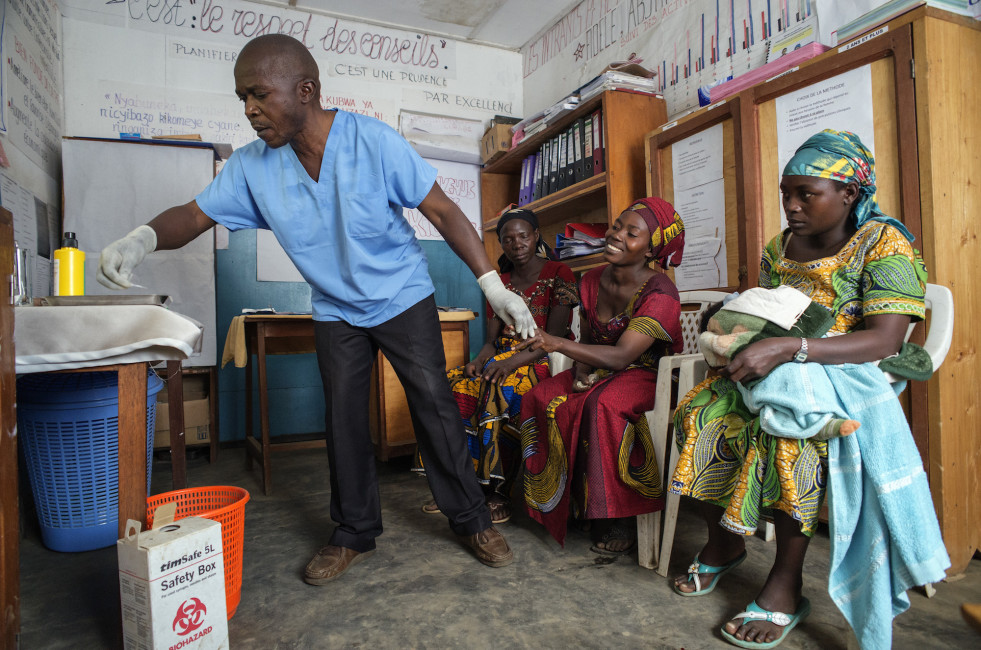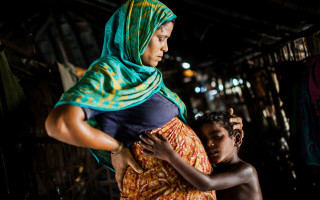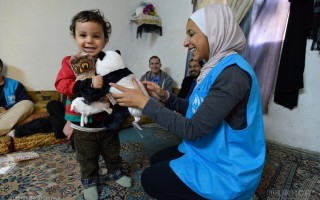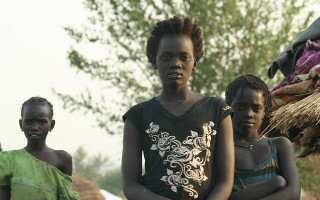
A Congolese woman has blood drawn from her finger by Dr. Kalibongo Raymond during an STD screening at the health center in Kitsule, North Kivu, Democratic Republic of Congo. © UNHCR / B. Sokol
“To see a woman die in childbirth is something you never get used to. These are mostly healthy women and pregnancy is not a disease. In most cases you know that a few simple actions—a few simple items—would have been enough to save the mother and child.” Nadine Cornier, who is Senior Regional Reproductive Health and HIV Coordinator for UNHCR, has firsthand knowledge of maternal and newborn health in refugee camps. A former midwife, in her current role at UNHCR, she is passionate about the agency’s Safe Mother and Baby programs and the difference they can make to the lives of refugee families.
Each year, thousands of women die due to complications during pregnancy and childbirth. The risks are even greater for displaced and refugee women and children living in poverty and unsanitary conditions without access to antenatal or obstetric care. Many of these women have already experienced incredible trauma—forced to flee ongoing conflict and devastation in their homeland, in many cases losing their homes, their husbands and their children.
Often the fact that refugee camps provide health services, including mother and baby programs, means the difference between life and death for expectant mothers. Sometimes health services in refugee settlements are better than that available in the refugees’ home country. “When we set up a camp we immediately organize a health centre and referral system,” Ms. Cornier says. “This is not the case in parts of Africa where women have to walk for many kilometres to access care. We try to do as much as we can to reduce infant mortality; it’s difficult but it’s true that almost everywhere our results are better than the home country and even the host country,” she says, attributing the decrease in infant mortality to the fact that UNHCR policies state that health services must be available at certain proximities to refugees and displaced people.
UNHCR supports the training of skilled birth attendants and provides medical supplies for midwife delivery kits and equipment for delivery rooms. UNHCR also supports simple, yet highly effective, initiatives such as the distribution of Clean Delivery Kits. Containing a plastic sheet, clean blade, soap, string, swaddling and resuscitation instructions, they enable mothers to give birth in a clean environment, reducing the risk of hemorrhage and post-natal infection.





